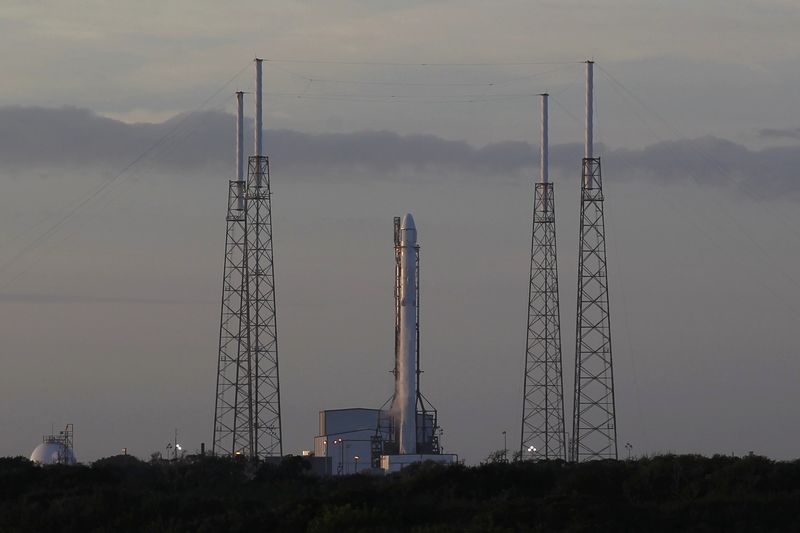By Irene Klotz
CAPE CANAVERAL, Fla. (Reuters) - - The launch of a Space Exploration Technologies Falcon 9 rocket from Florida was called off at the last minute on Tuesday due to a potential technical glitch with the booster's upper-stage motor, NASA said.
The rocket, carrying a Dragon cargo ship for the International Space Station, was due to lift off from Cape Canaveral Air Force Station at 6:20 a.m. EST (11:20 a.m.).
But with less than two minutes left in the countdown, a computer triggered an automatic abort, NASA launch commentator George Diller said. The problem appears to be with a piece of equipment in the Falcon 9's upper-stage engine, he said.
The next opportunity for launch is at 5:09 a.m. EST (10:09 a.m.) on Friday.
When launched, the Falcon rocket is slated to separate from its upper-stage engine and Dragon capsule, and is expected to attempt an unprecedented landing on a floating platform positioned off Florida's East Coast.
If successful, the test will mark a significant step in SpaceX's quest to develop rockets that can be refurbished and reflown.
"If you were to throw the airplane away after every trip you take it's going to be expensive," SpaceX vice president Hans Koenigsmann, told reporters at a prelaunch press conference.
"This would have an impact on the entire industry," he said.
SpaceX founder and chief executive Elon Musk previously said he estimated the chance of a successful landing at 50 percent.
"I pretty much made that up. I have no idea," Musk said in an interview on Reddit a few hours before Tuesday's launch attempt.
The primary purpose of the flight is to deliver a Dragon cargo capsule to the space station, a $100 billion (66 billion pounds) outpost that flies about 260 miles (418 km) above Earth. The capsule is loaded with more than 5,100 pounds (2,313 kg) of food, supplies and equipment.
The science gear includes a fruit fly experiment designed for immune system studies and an instrument to be mounted outside the station to measure clouds and aerosols in Earth's atmosphere.
SpaceX is one of two companies making cargo runs to the station for NASA under contracts worth a combined $3.5 billion.

However, the second firm, Orbital Sciences Corp., was sidelined in October after its Antares rocket exploded minutes after liftoff. Orbital expects to resume flying aboard another firm's rocket late this year while it outfits Antares with new engines.
(Editing by W Simon)